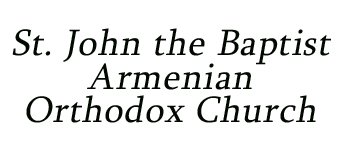THE RAISING OF LAZARUS
On Saturday before Palm Sunday the Armenian Orthodox Church commemorates the Raising of Lazarus as told in the Gospel of John, Chapter 11. Lazarus and his sisters Mary and Martha were good friends of Jesus.
On Saturday before Palm Sunday the Armenian Orthodox Church commemorates the Raising of Lazarus as told in the Gospel of John, Chapter 11. Lazarus and his sisters Mary and Martha were good friends of Jesus.
Sixth and final Sunday of Great Lent, known as Sunday of Advent (Kalstyan Giragi). Sunday of Advent is in preparation of the following Sunday, Palm Sunday, which is the celebration of the glorious entry of our Lord into Jerusalem and the beginning of Holy Week.
The Parable of the Dishonest Manager, as with other parables found in the Gospels, is about the Kingdom of God. Through the observable realities in the parable, Jesus reveals the invisible truths. Many have wondered as to why our Lord Jesus describes the dishonest manager as an example to emulate. It is important to note that our Lord Jesus does not praise the dishonesty but the shrewdness of the manager and his resourcefulness and approach to money. “And his master commended the dishonest manager because he …
The fourth Sunday of Lent, is the Sunday of the Steward. The parable of The Unrighteous Steward is in the Gospel of Luke, Chapter 16, verses 1 to 8. This parable is about a rich man and his steward. The steward was one who looked out for his own personal benefit and through his cunning arrangements he made deals with those who were in debt to his master…
Our journey through Great Lent continues. This Sunday, February 25, is the Sunday of the Prodigal Son. The parable of the prodigal son shows God’s fatherly love and eagerness to forgive those who repent.
On the second Saturday in Great Lent (Poon Paregentan) the Armenian Church commemorates St. Cyril (315-386) of Jerusalem, a doctor of the church. St. Cyril had a pleasant and conciliatory disposition, but he lived at a time when bishops were embroiled in bitter controversies and were quick to condemn any attempts at compromises, even calling such attempts as treason…
Many believe that God sent Adam and Eve away from the Garden merely because of the sin of eating the forbidden fruit. Certainly, they did not obey God’s word, and due to their disobedience, they were expelled from the garden. However, their disobedience was only one of the reasons for their expulsion. The more crucial reason was that they did not accept their sin, and they did not claim responsibility for their own wrongs. The Holy Scriptures tell us that after they had sinned, God asked Adam, “Have you …
As of Monday we entered the period of Great Lent (Medz Bahk), and the Church has taken on a somber, mournful, and penitential manifestation. Beginning last Sunday, which was Poon Paregentan, the altar is closed with a dark curtain, symbolic of the expulsion of Adam and Eve from the Garden of Eden.
Poon Paregentan, similar to Mardi Gras or “Fat Tuesday,” occurs on the Sunday before the Great Lent (Medz Bahk) in preparation for Easter. We celebrate Poon Paregentan (meaning vitality or the good life), which leads us into the longest season of fasting, known as the Great Lent. The Sunday prior to this great feast is when we remember the Good Life in paradise prior to Adam and Eve’s expulsion…
Poon Paregentan ushers the faithful into the Lenten period of fasting, penance, and reconciliation. Paregentan Sunday is the last day before the start of Lent. It is marked with good and abundant food, merriment, entertainment, and festivities of various kinds.
Sorry, no posts matched your criteria
